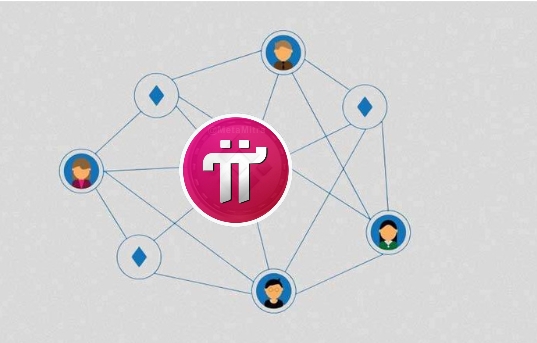Many blockchain networks have faced criticism for their excessive energy consumption, but the Pi Network stands out as a pioneer in eco-friendly blockchain technology. At the heart of Pi Network’s success are its consensus algorithms, which are based on the Stellar Consensus Protocol (SCP) and an innovative approach known as Federated Byzantine Agreement (FBA). These algorithms not only eliminate the energy waste associated with traditional Proof of Work (PoW) systems but also ensure the security and reliability of the network through efficient message exchange and independent transaction validation.
Pi Network’s SCP and FBA: A Sustainable Consensus
The Pi Network’s use of SCP and FBA sets it apart from blockchain networks that rely on energy-intensive PoW algorithms. Traditional PoW systems, as famously used by Bitcoin, require miners to solve complex mathematical puzzles, consuming vast amounts of electricity. In contrast, SCP and FBA are designed to be energy-efficient, making Pi Network a sustainable choice in the world of cryptocurrencies.
Efficient Network Message Exchange
One of the key features of Pi Network’s consensus algorithms is the efficient exchange of network messages. In a blockchain, consensus refers to the process by which nodes agree on the state of the ledger, ensuring that transactions are valid and consistent across the network. SCP and FBA enable nodes to achieve consensus without the need for resource-intensive mining. Instead, they rely on the exchange of network messages among nodes.
Independence in Transaction Validation
Another noteworthy aspect of Pi Network’s approach is the independence of transaction validation. In traditional blockchain networks, such as Bitcoin, transaction validation is often centralized, meaning that a select few miners or nodes have the authority to validate transactions. This can lead to centralization and potential security risks. In contrast, each node in the Pi Network can independently determine the validity of a transaction. This decentralized validation process enhances security and trust in the network.
The Pi Network Advantage
Pi Network’s adoption of SCP and FBA not only makes it environmentally friendly but also contributes to its overall efficiency and security. Here are some advantages of these consensus algorithms:
1. Reduced Environmental Impact: By eliminating energy-intensive mining, Pi Network significantly reduces its carbon footprint, aligning with growing concerns about the environmental impact of blockchain technology.
2. Enhanced Scalability: SCP and FBA allow for efficient message exchange, which in turn improves the scalability of the network. This means that Pi Network can handle a larger number of transactions per second compared to some traditional blockchain networks.
3. Decentralization and Trust: Independent transaction validation ensures that the network remains decentralized and trustworthy. Users can have confidence in the security and integrity of their transactions.
Conclusion
The Pi Network’s consensus algorithms, based on SCP and FBA, exemplify a forward-thinking approach to blockchain technology. By prioritizing energy efficiency, efficient message exchange, and decentralized transaction validation, Pi Network sets a standard for sustainability and innovation in the world of cryptocurrencies. As the demand for eco-friendly and efficient blockchain solutions continues to grow, Pi Network’s unique approach positions it as a promising contender in the ever-evolving landscape of digital currencies. Pi Network












I am sending you 1π! Pi is a new digital currency developed by Stanford PhDs, with over 47 million members worldwide. To claim your Pi, follow this link https://minepi.com/daiv101 and use my username (daiv101) as your invitation code.